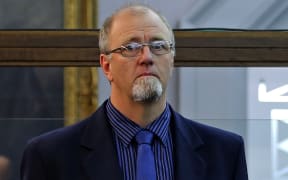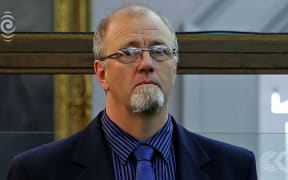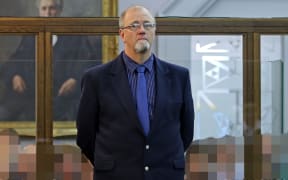Mark Lundy, who has twice been convicted of murdering his wife and daughter, is making a last-ditch bid to clear his name in the Supreme Court.
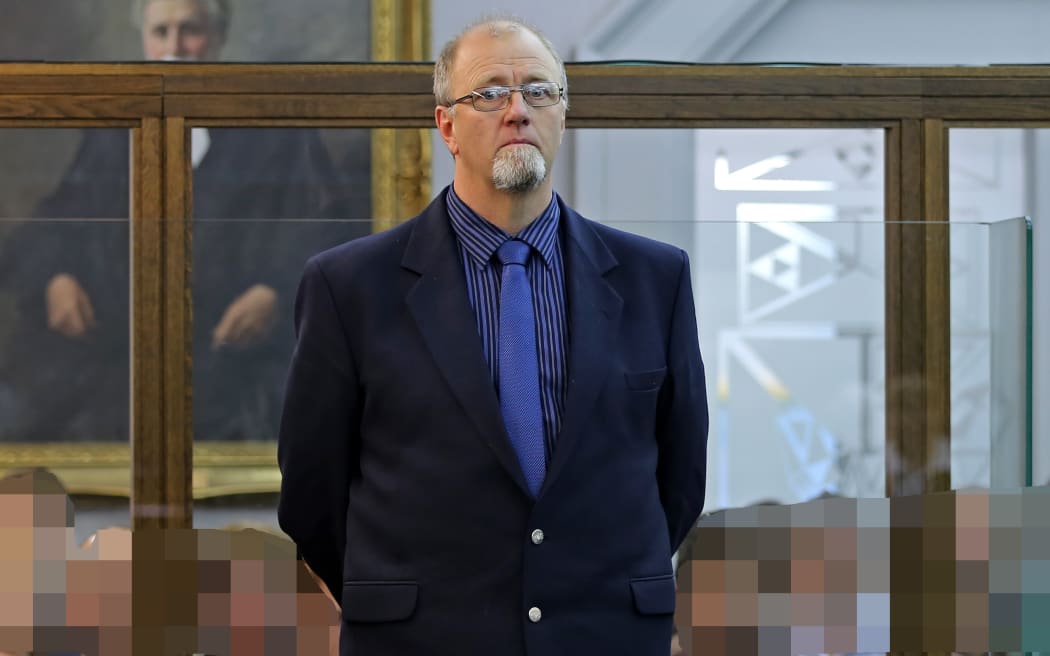
Photo: RNZ / Sharon Lundy
The bludgeoned bodies of Christine Lundy and seven-year-old Amber Lundy were found in their Palmerston North home in August 2000, but Lundy claimed to have been away on business when they died.
Mark Lundy was first convicted of their murder in 2002.
In October 2013, the Privy Council granted him a retrial but in 2015 he was again found guilty of their murders.
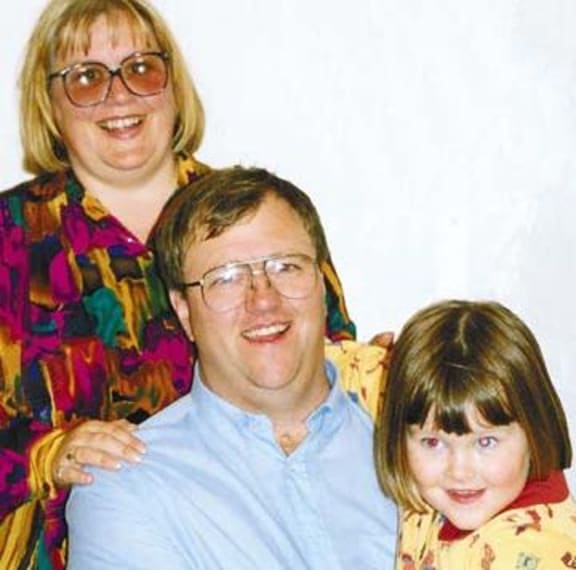
Christine, Mark and Amber Lundy. Photo: SUPPLIED
His lawyers today argued the Court of Appeal was wrong to uphold the convictions, given that it also ruled scientific evidence used at the retrial was inadmissible.
At his second trial, the Crown produced mRNA evidence relating to two stains found on Lundy's shirt. That type of evidence allows a scientist to pinpoint which part of the body a particular piece of tissue is from and experts at the retrial said it contained brain tissue from his wife.
Lundy's lawyer Jonathan Eaton told the court today that Lundy has been used as a guinea pig, as that kind of evidence had never been used before or since.
He said the court has to act as a gatekeeper when it comes to allowing such evidence to be used in a trial.
"There have been all sorts of problems and lots of international debate going on about the bar being set too low in terms of the admissibility of new science or junk science," he said.
"Mark Lundy, with all due respect, has been the victim of it and is still the victim of it and that's what really in the context of the trial says this is a substantial miscarriage [of justice]."
Crown lawyer Philip Morgan disputed that, saying even the defence's scientific experts at the retrial had agreed the material from the shirt was of a high quality and quantity, not just a trace of matter.
"So it had to come from something like body tissue or blood and possibly mucus, so it was that which was the cornerstone of the crown case.
"And of course, as the Court of Appeal pointed out ... there was no contest on that point of the case because the Crown experts and the defence experts all agreed."
Mr Eaton questioned the Court of Appeal's use of what is called 'the proviso', the mechanism that allowed the Court of Appeal to dismiss Lundy's case, even though it found some of the scientific evidence put before the Jury at his retrial was inadmissible.
The court ruled that no substantial miscarriage of justice had occurred, but Mr Eaton argued it was a breach of Lundy's right to natural justice under the Bill of Rights.
"The approach in terms of trial fairness is flawed and the Court of Appeal have conflated factor one, applying the proviso, is guilt inevitable and factor two, notwithstanding, is the trial fair."
However, Mr Morgan pointed to paragraphs in the Court of Appeal judgment that, he said, proved the court dealt with the issues separately.
"They say 'in the end we have been left sure of Mr Lundy's guilt' and then they go on ... to address the fair trial issue," he said.
"So you'll see there that they have actually been quite careful, in my submission, to make sure they're not conflating the two."
The Supreme Court reserved its decision on whether a third trial should be held.
After being found guilty at his 2015 retrial, Lundy was returned to jail to resume serving his 20-year non-parole jail term.
He becomes eligible to seek parole in August 2022.
